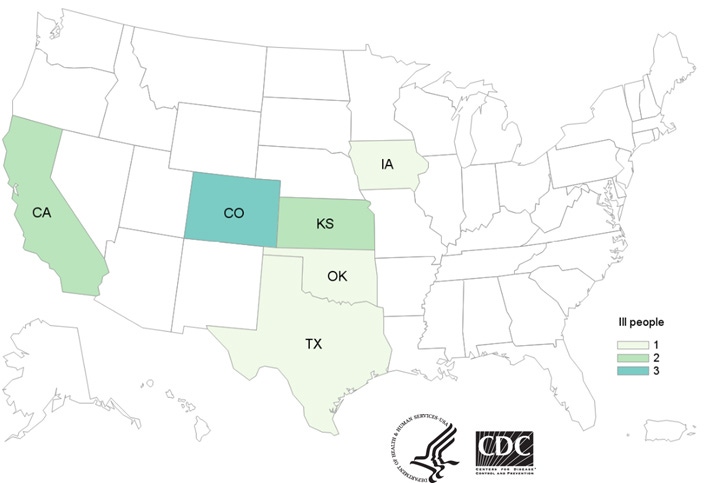Source in salmonella outbreak narrowed to ground beef
Exact source of S. Dublin outbreak undetermined, so no recall has been issued.

The Centers for Disease & Control Prevention, public health and regulatory officials in several states and the U.S. Department of Agriculture’s Food Safety & Inspection Service (FSIS) are investigating a multistate outbreak of Salmonella Dublin infections linked to ground beef. However, at this time, investigation of the outbreak has not identified a single, common supplier of ground beef.
Illnesses started on dates ranging from Aug. 8 to Sept. 22, 2019, in people range in age from 48 to 74 years, with a median age of 68. As of Nov. 1, 2019, a total of 10 people from six states infected with the outbreak strain have been reported.
“Of nine ill people with information available, eight (89%) were hospitalized, which is much higher than we would expect for salmonella infections,” CDC noted. “The hospitalization rate is usually about 20%.”
One death has been reported in California. CDC added, “Typically, Salmonella Dublin illnesses are more severe because they can cause bloodstream infections, which are serious and require hospitalization.”
CDC said additional illnesses may not have been reported yet due to the time it takes between when someone becomes ill and when the illness is reported, typically an average of two to four weeks.
Outbreak investigation
Epidemiologic and laboratory evidence indicates that ground beef is likely the source of the outbreak.
In interviews, ill people answered questions about the foods they ate and other exposures in the week before they became ill. Of eight people interviewed, six (75%) reported eating ground beef at home. This percentage is significantly higher than results from a survey of healthy people in which 40% of respondents reported eating any ground beef at home in the week before they were interviewed. Ill people reported buying ground beef from various stores.
CDC reported that laboratory testing identified the outbreak strain of S. Dublin in repackaged leftover ground beef collected from an ill person’s home in California. The outbreak has also been identified in six samples of raw beef products from slaughter and processing establishments.
Samples from slaughter and processing establishments were collected as part of FSIS’s routine testing under the salmonella performance standards. Whole-genome sequencing showed that the salmonella strain from these samples was closely related genetically to the salmonella from ill people. These results provide more evidence that people in this outbreak got sick from eating ground beef, but the investigation has not identified a single, common supplier of ground beef.
CDC said the outbreak investigation is ongoing, and updates will be provided to the public if more information becomes available.
Recall would be 'hugely disruptive'
Creighton Magid, a partner at international law firm Dorsey & Whitney and head of its Washington, D.C. office, said there's a reason nothing has been recalled yet.
"Although whole-genome sequencing has shown that samples taken from beef slaughter and processing operations are closely related to the strain of salmonella involved in the outbreak, the CDC has so far been unable to identify a common source of ground beef,” Magid said. “That means that the affected ground beef can’t be recalled without recalling all ground beef. Recalling all ground beef, of course, would be hugely disruptive, so nobody has taken that step yet."
Until the source of the salmonella can be determined, Magid said restaurants will need to be especially sure to cook ground beef thoroughly. “Grocery stores should consider using signs or labels to remind customers to cook ground beef thoroughly,” Magid suggested.
About the Author(s)
You May Also Like





